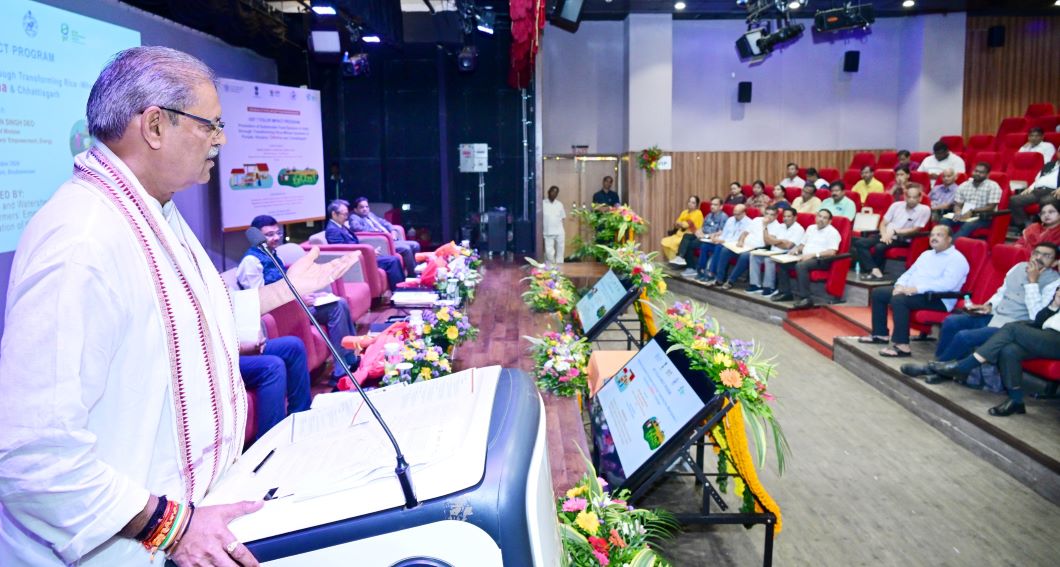Global Environment Facility Program: The Department of Agriculture and Farmers’ Empowerment, Government of Odisha in collaboration with the Food and Agriculture Organization of the United Nations (FAO), organized a one-day Odisha state inception workshop for the Global Environment Facility (GEF) 7 –cycle project titled “Promotion of Sustainable Food Systems in India through Transforming Rice-Wheat Systems in Punjab, Haryana, Odisha, and Chhattisgarh.” The event was held at the Krushi Bhawan in Bhubaneswar.
Mr. Kanak Vardhan Singh Deo, Deputy Chief Minister of Odisha, and Chief Guest for the event, highlighted the strong alignment between the GEF-funded project and the government of Odisha’s priority on promoting sustainable agriculture. He noted that the project’s objectives and strategies closely align with the state’s vision for a sustainable, more resilient, and food- and nutrition-secure future.
Mr. Takayuki Hagiwara FAO Representative in India highlighted the project’s innovative approach, focused on embedding sustainable farming practices in collaboratively managed landscapes to preserve ecosystem services and global environmental values. He assured participants of FAO’s close coordination with the Government of Odisha to achieve project outcomes successfully. Mr. Sanjay Sethi, National Project Coordinator, Promotion of Sustainable Food Systems through Transforming Rice-Wheat Systems, provided an overview of its objectives and scope.
The project is part of the ‘Food Systems, Land Use and Restoration (FOLUR) Impact India’ program and represents a significant commitment to enhancing sustainable food systems. It demonstrates the collaborative efforts of government bodies and international organizations to improve agricultural practices in India.
In Odisha, the project aims to promote sustainable rice farming, conserve soil and water resources, improve farmers’ resilience to climate challenges, and enhance their access to markets and technology. The project will be implemented in Ganjam and Kalahandi districts.
The inception workshop convened nearly 100 officials from various state government departments, the Indian Council for Agricultural Research (ICAR) institutes, Odisha University of Agriculture and Technology (OUAT), FAO regional and country office staff, and other public and private stakeholders. The primary goal of the workshop was to foster a shared understanding of the project’s goals and objectives in the state.
Other notable attendees included Dr Arabinda Kumar Padhee, Principal Secretary of Agriculture & Farmers’ Empowerment and Handloom, Textiles & Handicrafts and Shri Nikhil Pavan Kalyan, Director of the Directorate of Soil Conservation and Watershed Development.
The five-year (2023-2028) GEF 7 FOLUR Impact Program seeks to accelerate India’s transition towards a new model of sustainable agriculture, promote healthy landscapes and ecosystems, and deliver multiple global environmental benefits. The project adopts an innovative “whole food system” approach, empowering farmers to manage their farming and livelihood systems sustainably, resiliently, and agroecologically.
The Ministry of Environment, Forest & Climate Change (MoEF&CC), Government of India, serves as the nodal operational focal point, with the Ministry of Agriculture and Farmers’ Welfare (MoA&FW), Government of India acting as the implementing ministry. FAO serves as the implementing agency, while the four state governments of Odisha, Chhattisgarh, Haryana and Punjab are operational partners in executing the project.
